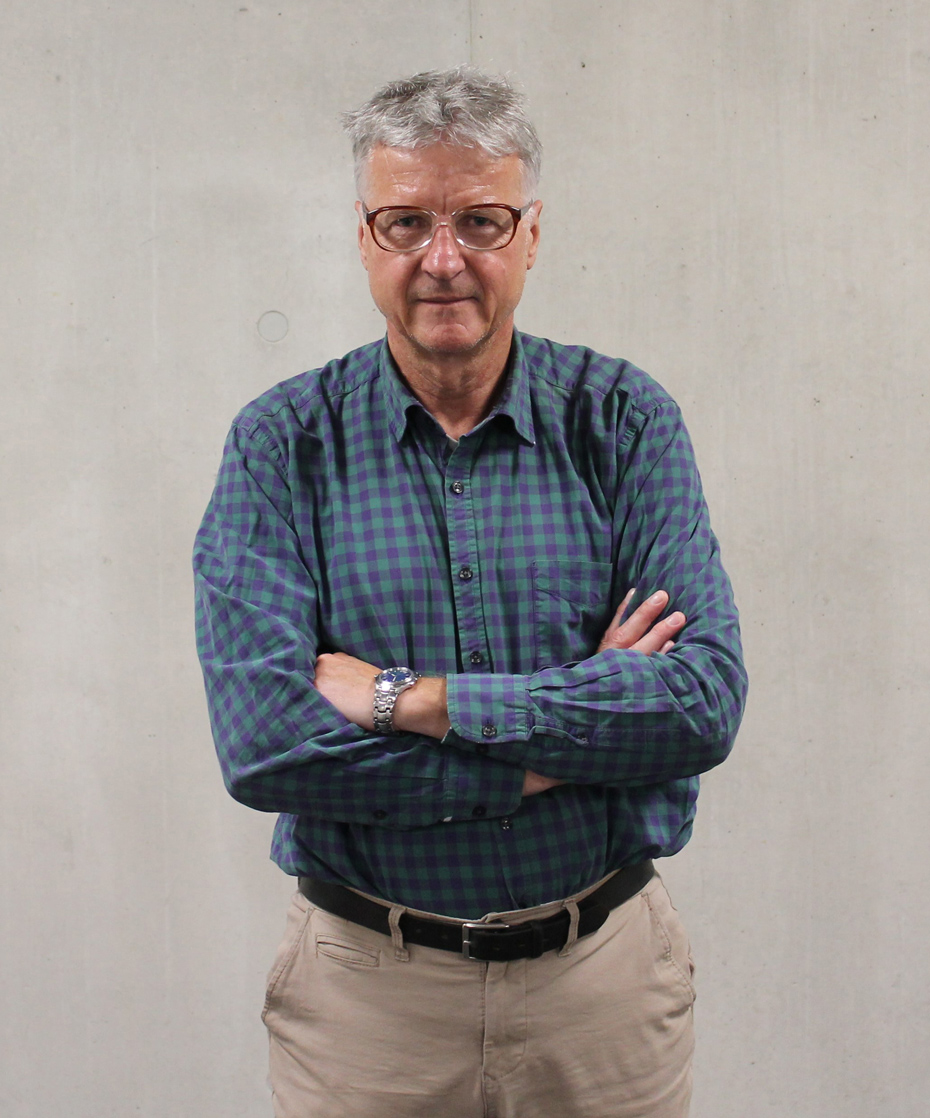“The welfare state is not an outdated model”

Michael Graff, Co-Head of the Research Division Macroeconomic Forecasting and Data Science, explains his views on the successful initiative for a 13th monthly AHV pension payment and the future of the welfare state in an age of demographic change. He also reveals what plans he has for his retirement.
Although Switzerland is known throughout the world for its disciplined fiscal policies, it recently and surprisingly decided to increase pensions by 8 per cent without specifying the necessary funding. Is this a political paradigm shift towards the sort of sprawling welfare state seen in Germany?
I have three objections here. We can argue endlessly about what constitutes disciplined fiscal policies. The debt brake obliges Switzerland to maintain a balanced budget over the economic cycle. In this scenario, the debt ratio – i.e. debt as a share of gross domestic product – declines in a growing economy. This is driven by the view that government debt is bad per se. This judgement can rightly be questioned: it depends partly on what the debt is used to fund. Secondly, Switzerland is a long way from becoming a welfare state that is out of control. It has a fairly lean welfare state by European standards. Thirdly, the result of the vote was not surprising and was clearly foreseeable weeks beforehand. I don’t call that a paradigm shift. The Swiss voted in favour of what I would consider to be a moderate expansion of the AHV pension scheme.
But wouldn’t means-tested welfare policies to combat poverty in old age be better than handing out money indiscriminately to all pensioners?
I don't like the term ‘indiscriminately’ here. Many public goods such as education, internal security and national defence are provided on a universal basis for the entire population. This is not specific to the AHV scheme. The problem with means-tested welfare policies, such as the supplementary benefits and social security available in Switzerland, is that those entitled to them must actively claim their entitlements and provide proof of such needs. But many of those affected do not do this out of shame or ignorance.
“Switzerland is a long way from becoming a welfare state that is out of control. It has a fairly lean welfare state by European standards.”Michael Graff
Nevertheless, a funding gap remains...
The necessary funding must now be agreed as part of the political process. An increase in VAT, pension contributions or federal tax revenues would be feasible. I am assuming a combination of these three options.
Meanwhile, the demographic problem of the AHV scheme remains unresolved: we have too few contributors and too many recipients – and this trend is on the increase.
This narrative is only partially true. When the AHV was introduced after the Second World War, female labour force participation was extremely low. Today it is much higher thanks to better state childcare services, and the number of children per woman has also fallen significantly. It is now also socially acceptable in Switzerland for a mother to go out to work and take her child to a childcare facility. This increases the number of people in employment, even though the number of individuals of working age is falling. Moreover, as there are now fewer children, the ratio of dependents (children and the elderly) to workers is falling. In addition, immigration – which is linked to employment – increases the number of contributors. Finally, continuous progress is being achieved in terms of labour productivity, which has grown by 1 to 2 per cent annually since the Industrial Revolution. This is enhancing the financial viability of the pension system.

Aside from the pension system, is the traditional welfare state still a sustainable model in view of demographic change or do we need to think much more about private forms of provision?
The welfare state is not an outdated model. The Swiss Federal Constitution literally states that “the strength of the people is measured by the welfare of the weak”. The establishment and maintenance of a welfare state is therefore a constitutional imperative. It is my moral conviction, which is in line with the American philosopher John Rawls’ theory of justice1, that we need more redistribution rather than less. There are also functional arguments in favour of a welfare state. When inequality is extremely high, the disadvantaged try to obtain what they believe they are entitled to by force. Consequently, the middle and upper classes live in constant fear for their property and their lives and therefore have to live in gated communities – as in Brazil, for example. That is not a very nice life.
Many supporters of the welfare state are also in favour of open borders. Can a welfare state function without borders or will it automatically collapse owing to uncontrolled immigration?
That is indeed a dilemma. If every immigrant were entitled to welfare benefits and a pension without ever having paid into the system, the welfare state would collapse. That’s why I find the concept of a universal basic income unconvincing – even if the idea is appealing.
Let’s consider the other extreme then. What would happen if immigration were massively restricted?
If the borders were closed today, the labour force would shrink rapidly. The shortage of skilled labour would be even greater than it already is. This in turn would make it more difficult to fund the social welfare system and public goods such as national defence and healthcare. The quality of research and teaching at universities would also deteriorate rapidly without foreign academics and students, which would weaken Switzerland’s ability to innovate in the long term.
“I am glad that economics has largely moved away from pure theorising over the course of time.”Michael Graff
The environmental movement uses the terms ‘post-growth economy’ and ‘degrowth’ to call for a departure from our growth-driven economic model. Can a welfare state function without growth as a means of redistribution?
There is no compelling reason why a welfare state only works in a growing economy. Japan has hardly grown at all for decades but has maintained its welfare state. However, the resistance to redistribution is greater if this redistribution is funded not from growth but from what is already there. Politicians would have to face up to this challenge.
You are retiring this May after 23 years of service at KOF and 35 years of working in economic research in Germany, New Zealand, Australia and Switzerland. How do you view the discipline of economics today?
I am glad that economics has largely moved away from pure theorising over the course of time. It is my view that you can’t learn much about the real world by making deductions from axioms. The moment you have written down your assumptions, the conclusions are already clear. You just have to derive them correctly. The philosopher and sociologist Hans Albert has rightly criticised this trend, which has long been dominant in economics, as ‘model Platonism’2. Today, most researchers work with real data on concrete problems. I consider this empirical approach to economic research to be much more fruitful. However, I would like to see more critical awareness in some areas. When you concentrate on problems that are currently being debated and need to be solved and rely on empirical data, the focus is on either the status quo or the past. I think the question of whether the world could look different is being neglected. Yet this question has a long tradition in political economy – not only with left-wing theorists such as Karl Marx but also with liberal theorists such as Adam Smith, David Ricardo, John Stuart Mill and Friedrich Hayek.
What plans do you have for your retirement?
I hope to remain a thinking person for some time to come and will continue to research, write and publish. As a social scientist, unlike a natural scientist, I don’t need a laboratory to do this – just a desk, a personal computer and people with whom I can share ideas. To be honest, though, I’m glad that many administrative duties will disappear in future and that I can concentrate more on what is politically important to me and on what I just enjoy doing.
------------------------------------
1John Rawls (1971): A Theory of Justice, Harvard University Press.
2Hans Albert (1967): Marktsoziologie und Entscheidungslogik, Luchterhand Verlag
Contacts
KOF Konjunkturforschungsstelle
Leonhardstrasse 21
8092
Zürich
Switzerland
KOF Bereich Zentrale Dienste
Leonhardstrasse 21
8092
Zürich
Switzerland
